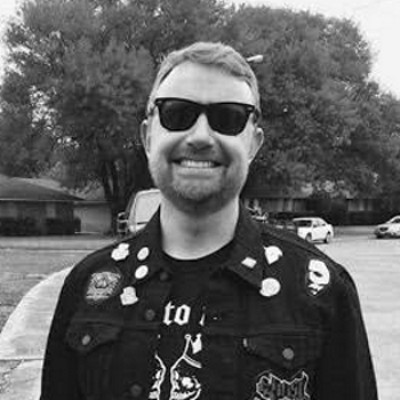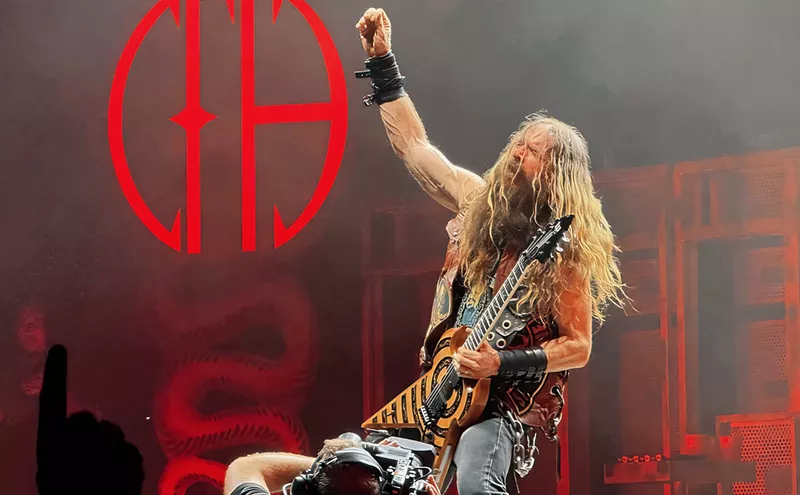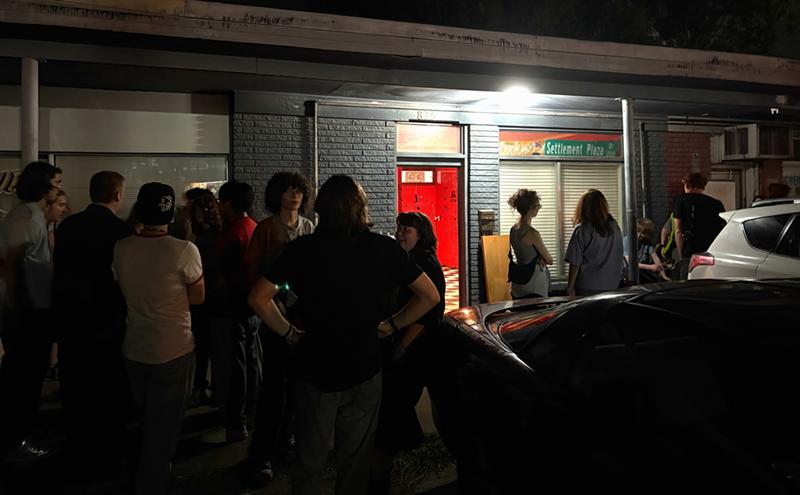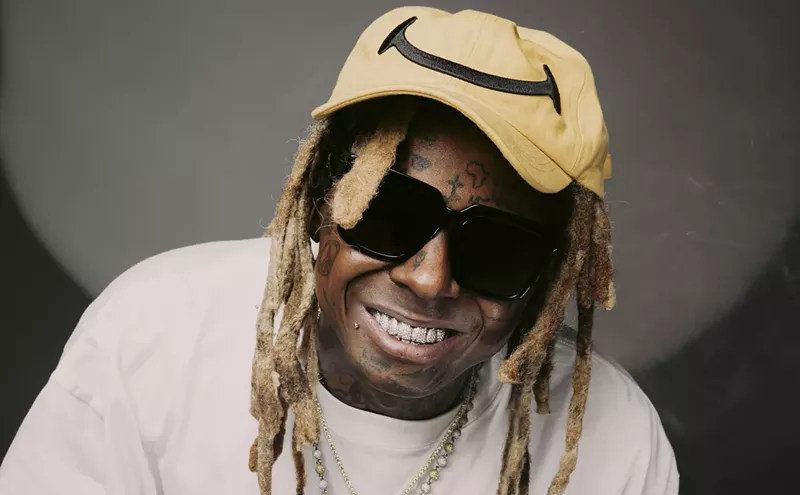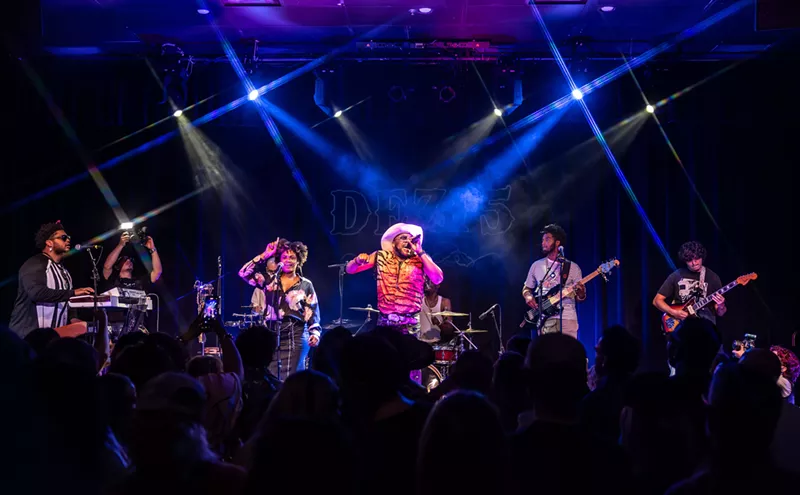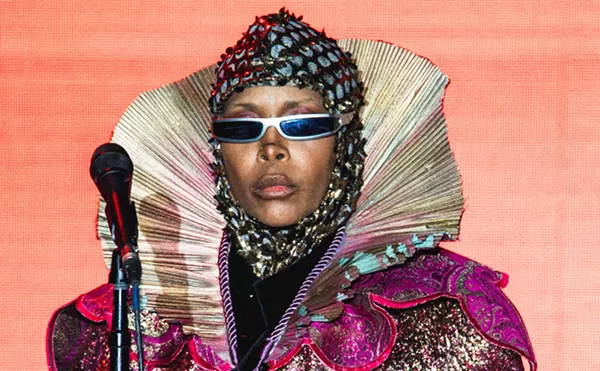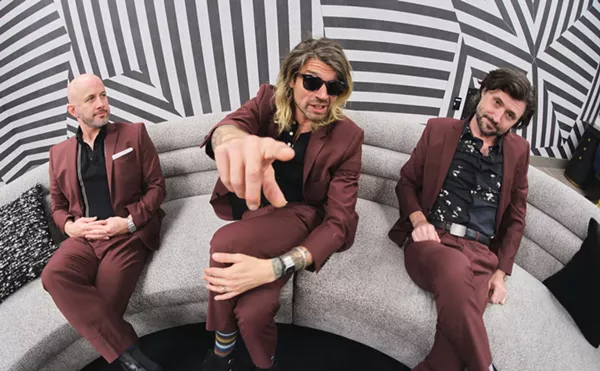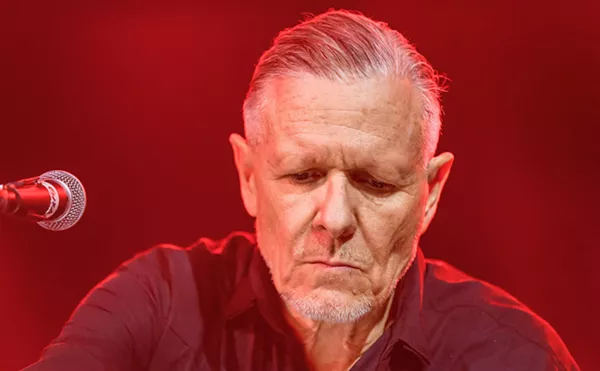Brandon Curtis always stood by his little brother’s side. Going all the way back to the 1990s, Brandon and Benjamin shared the stage in bands like UFOFU and Secret Machines. Brandon was also at his brother’s side when Benjamin was diagnosed with T-cell lymphoblastic lymphoma in 2013. He stayed there through Benjamin’s chemotherapy treatment and, in December of that same year, Brandon was in the hospital room when Benjamin passed away.
Benjamin was just 35.
More than a year and a half after Benjamin’s death, Brandon has now returned to making music with his band Cosmicide — but it hasn’t been easy. “Among many things that I felt when I lost my brother was how sheltered my life had been,” Brandon says over the phone, after a show in Toronto with Cosmicide and Interpol. (Yes, that Interpol.) “You lose somebody who’s that close to you, an integral part of your day-to-day life, it kind of changes day-to-day life when you move on from there.”
A new Cosmicide song, “A New Disaster,” premiered earlier this month on Noisey with an eye-dazzling video. The song harkens back to their work with Secret Machines, with its blend of repetitive, krautrock loops mixed with keyboard layers and Brandon’s rich and mysterious vocal melodies. And the memory of Benjamin is never far from his mind. “Benjamin was a person that, if I heard a new record, I would call him, or if I had a question about music, we’d chat about music. He was my touchstone and the person that grounded me.”
Cosmicide has been based in Burlington, Vermont, for the last three years so Brandon’s partner can finish her college studies there, but longtime Dallas music fans will remember the Curtis brothers best from the time they spent here. Benjamin was a member of the legendary band Tripping Daisy in the early ’90s, and, after he and Brandon released a pair of highly praised EPs as Secret Machines, he struck out on his own to form School of Seven Bells. He remained with that band until he became too ill to perform.
Meanwhile, Brandon carried on as Secret Machines for one more record before joining Interpol. He still has many ties to the Dallas area; his father and stepmother live here with their sons, as does his mother. And then there are the ongoing relationships from his days in UFOFU and, later, Captain Audio. “I have so many great lifelong friends there,” he says. “I really count Dallas as a very important place for me. It was special in my life and it still is because I feel so much fondness and affection for people that are still there.”
The beginnings of his current projects coincided with the end of Secret Machines, around 2008. “Cosmicide really started after the third Secret Machines record,” Brandon says. “Phil [Karnats, Benjamin’s replacement] was in Chicago, Josh [Garza, drummer] moved to L.A., and I was like, ‘I need to start something on my own.’ It was a real grounded moment for me.” Around the time that Cosmicide formed, Brandon also got a call from Paul Banks, Interpol’s frontman, asking him to join the band as a touring keyboardist.
Benjamin’s illness and eventual death brought Brandon’s work with Cosmicide to a halt, but in January of this year, he started the project back up. In March, he returned to Interpol. Originally Cosmicide was a solo project, but he has since added a live band to help him play his material. “The people I’m working with, I feel very supported,” Brandon says. “I have a really great manager and some colleagues in the music business that are very supportive of me.”
The Toronto show was only the fifth one for this lineup of members, so things are a little chaotic. “We don’t have a system yet,” Brandon says. “We’re still figuring it out. I can’t tell you how grateful I am to the Interpol crew and the people I have around me. They’re positive and they’re psyched.” The current Cosmicide lineup features three members of Lip Talk, a Brooklyn-based band that Benjamin introduced him to before he passed away. “As long as [they can stick around], I’m happy to have them,” he says.
As for the possibility of a Cosmicide album in the near future, Brandon can’t give a straight answer at this moment. “That remains to be seen,” he says. “I have a whole bunch of songs recorded in various degrees of completion. The landscape’s different now. Because I’ve been working with Interpol, I haven’t really been able to invest in developing Cosmicide.”
The recordings that he made with his brother, however — especially Secret Machines’ Now Here is Nowhere and Ten Silver Drops — live on. When Brandon plays with either of his current projects, his memories of Benjamin are at their most vivid, but also their most comforting. “That’s when I feel close to him again,” he says. “That’s when I feel like I would be communicating with him. There’s a lot of familiarity and comfort in music. That said, there’s also a [recognition of] the profound loss of this very important character involved in music.”
Brandon appreciates the comments he receives from fans of Secret Machines and UFOFU, as well as School of Seven Bells. Even when he’s out on tour with Interpol, people tell him how much Benjamin meant to them. “I feel compelled to live up to the standards that he left,” he says. “His intensity and dedication and work ethic; it’s a challenge to know that I want to be the kind of person that he was in music. He left me this legacy of a challenge. His loss created a big empty space that’s going to take a lot of effort to fill up. I don’t know if anyone can fill it up, but I’m definitely going to try.”
There’s no sign of stopping for Brandon and he knows Benjamin would want him to continue playing music. “I still relate to my memory of him,” he says. “I still relate to his essence. His existence is still very much in the present tense in my thoughts and emotions. I want to honor that. I’m not going to pretend like that didn’t happen. You get used to pain and loss, and that’s what I’m starting to get used to. It’s not getting easier, but I’m used to the difficulty. It’s not easy and it’s not supposed to be easy.”

Audio By Carbonatix
[
{
"name": "GPT - Billboard - Slot Inline - Content - Labeled - No Desktop",
"component": "21721571",
"insertPoint": "2",
"requiredCountToDisplay": "2"
},{
"name": "STN Player - Float - Mobile Only ",
"component": "21861991",
"insertPoint": "2",
"requiredCountToDisplay": "2"
},{
"name": "Editor Picks",
"component": "17105533",
"insertPoint": "4",
"requiredCountToDisplay": "1"
},{
"name": "Inline Links",
"component": "18349797",
"insertPoint": "8th",
"startingPoint": 8,
"requiredCountToDisplay": "7",
"maxInsertions": 25
},{
"name": "GPT - 2x Rectangles Desktop, Tower on Mobile - Labeled",
"component": "22608066",
"insertPoint": "8th",
"startingPoint": 8,
"requiredCountToDisplay": "7",
"maxInsertions": 25
},{
"name": "Inline Links",
"component": "18349797",
"insertPoint": "8th",
"startingPoint": 12,
"requiredCountToDisplay": "11",
"maxInsertions": 25
},{
"name": "GPT - Leaderboard to Tower - Slot Auto-select - Labeled",
"component": "17357520",
"insertPoint": "8th",
"startingPoint": 12,
"requiredCountToDisplay": "11",
"maxInsertions": 25
}
]

